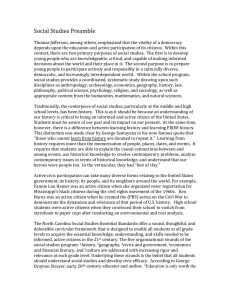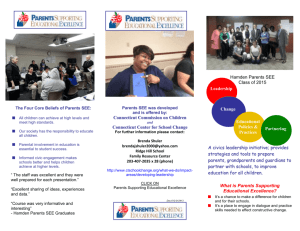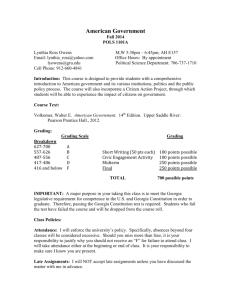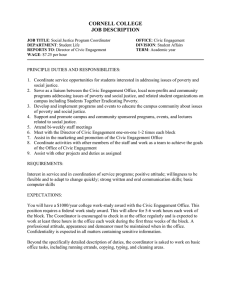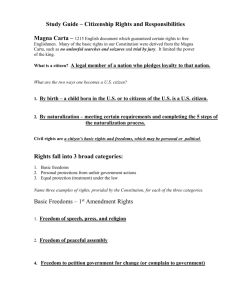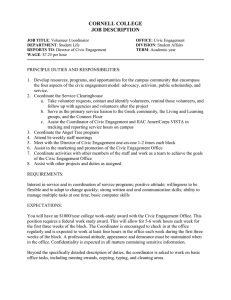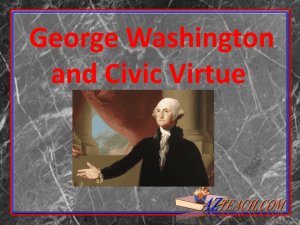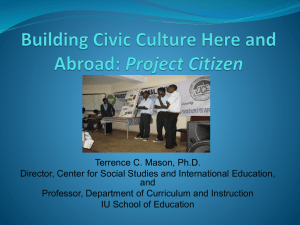Unit 6 Review
advertisement
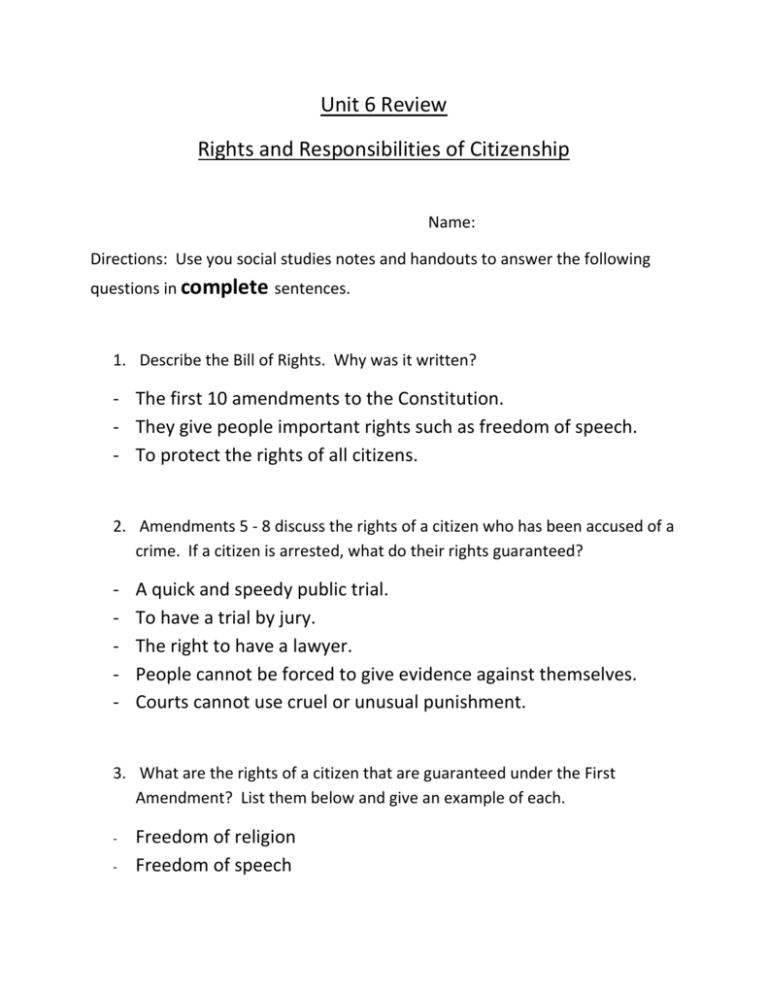
Unit 6 Review Rights and Responsibilities of Citizenship Name: Directions: Use you social studies notes and handouts to answer the following questions in complete sentences. 1. Describe the Bill of Rights. Why was it written? - The first 10 amendments to the Constitution. - They give people important rights such as freedom of speech. - To protect the rights of all citizens. 2. Amendments 5 - 8 discuss the rights of a citizen who has been accused of a crime. If a citizen is arrested, what do their rights guaranteed? - A quick and speedy public trial. To have a trial by jury. The right to have a lawyer. People cannot be forced to give evidence against themselves. Courts cannot use cruel or unusual punishment. 3. What are the rights of a citizen that are guaranteed under the First Amendment? List them below and give an example of each. - Freedom of religion Freedom of speech - Freedom of assembly Freedom of the press Right to petition 4. Why would freedom of speech be limited? Give a specific example. - With rights come responsibilities - Do not want to yell “FIRE” in a crowded area, it could be dangerous - Be respectful that others have the freedom of speech as well. 5. Since our government is run by popular sovereignty, people have civic responsibilities, or duties. List 3 examples of civic responsibilities (duties) and give an example of each. - Popular sovereignty means people hold the power in their government. - Examples of civic responsibilities: - voting (knowledgably) - jury duty - paying taxes - follow the laws 6. Explain what public issues are and why it is a civic responsibility to stay informed about public issues. - Public issues: - can be at the local, state, regional, and national level - can be controversial - can be supported by a Core Democratic Value - can be supported by different view points - Stay informed: - know what’s going on - it may affect you and people you know - to take action to try to resolve the public issue 7. Give an example of a public issue and what citizens should do in order to resolve it. - Citizens need to work together - Citizens need to evaluate alternative resolutions - Citizens need to analyze information about a public issue - Legislature or other government action might be needed
